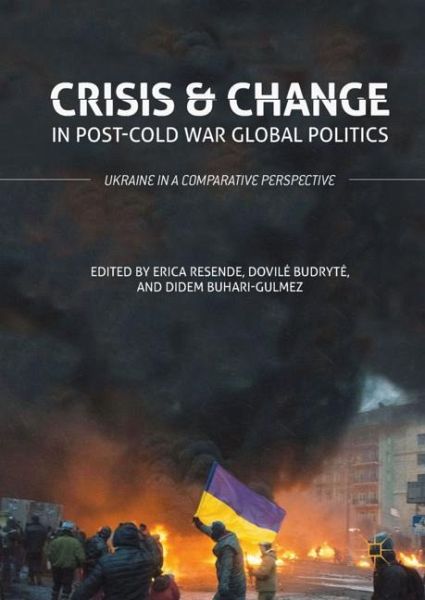
Crisis and Change in Post-Cold War Global Politics
Ukraine in a Comparative Perspective
Herausgegeben: Resende, Erica; Budryt, Dovil; Buhari-Gulmez, Didem

PAYBACK Punkte
53 °P sammeln!
This volume analyzes crises in International Relations (IR) in an innovative way. Rather than conceptualizing a crisis as something unexpected that has to be managed, the contributors argue that a crisis needs to be analyzed within a wider context of change: when new discourses are formed, communities are (re)built, and new identities emerge. Focusing on Ukraine, the book explore various questions related to crisis and change, including: How are crises culturally and socially constructed? How do issues of agency and structure come into play in Ukraine? Which subjectivities were brought into ex...
This volume analyzes crises in International Relations (IR) in an innovative way. Rather than conceptualizing a crisis as something unexpected that has to be managed, the contributors argue that a crisis needs to be analyzed within a wider context of change: when new discourses are formed, communities are (re)built, and new identities emerge. Focusing on Ukraine, the book explore various questions related to crisis and change, including: How are crises culturally and socially constructed? How do issues of agency and structure come into play in Ukraine? Which subjectivities were brought into existence by Ukraine crisis discourses? Chapters explore the participation of women in Euromaidan, identity shifts in the Crimean Tatar community and diaspora politics, discourses related to corruption, anti-Soviet partisan warfare, and the annexation of Crimea, as well as long distance impacts of the crisis.














